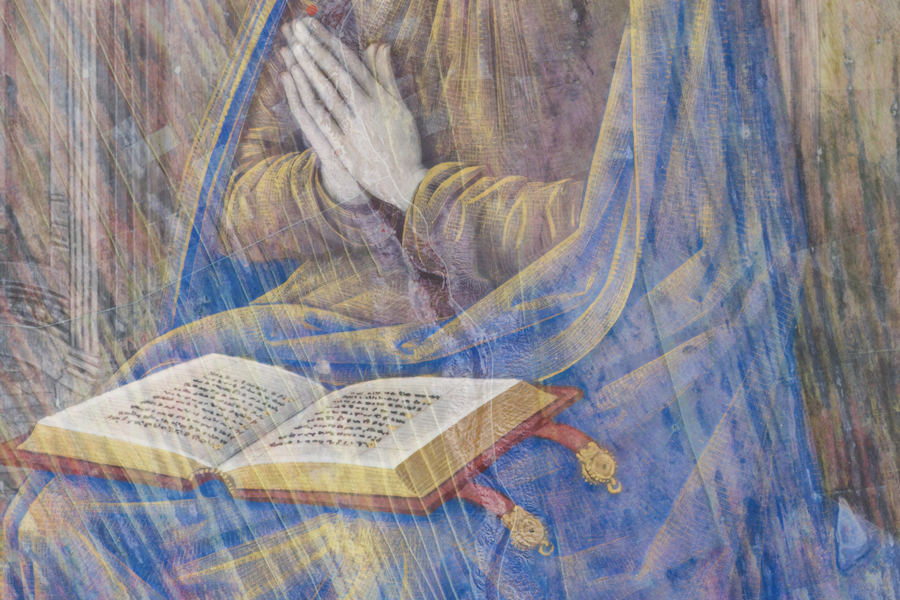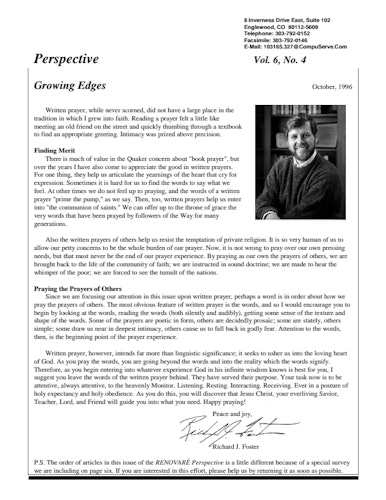Written prayer, while never scorned, did not have a large place in the tradition in which I grew into faith. Reading a prayer felt a little like meeting an old friend on the street and quickly thumbing through a textbook to find an appropriate greeting. Intimacy was prized above precision.
Finding Merit
There is much of value in the Quaker concern about “book prayer”, but over the years I have also come to appreciate the good in written prayers. For one thing, they help us articulate the yearnings of the heart that cry for expression. Sometimes it is hard for us to find the words to say what we feel. At other times we do not feel up to praying, and the words of a written prayer “prime the pump,” as we say. Then, too, written prayers help us enter into “the communion of saints.” We can offer up to the throne of grace the very words that have been prayed by followers of the Way for many generations.
Also the written prayers of others help us resist the temptation of private religion. It is so very human of us to allow our petty concerns to be the whole burden of our prayer. Now, it is not wrong to pray over our own pressing needs, but that must never be the end of our prayer experience. By praying as our own the prayers of others, we are brought back to the life of the community of faith; we are instructed in sound doctrine; we are made to hear the whimper of the poor; we are forced to see the tumult of the nations.
Praying the Prayers of Others
Since we are focusing our attention in this issue upon written prayer, perhaps a word is in order about how we pray the prayers of others. The most obvious feature of written prayer is the words, and so I would encourage you to begin by looking at the words, reading the words (both silently and audibly), getting some sense of the texture and shape of the words. Some of the prayers are poetic in form, others are decidedly prosaic; some are stately, others simple; some draw us near in deepest intimacy, others cause us to fall back in godly fear. Attention to the words, then, is the beginning point of the prayer experience.
Written prayer, however, intends far more than linguistic significance; it seeks to usher us into the loving heart of God. As you pray the words, you are going beyond the words and into the reality which the words signify. Therefore, as you begin entering into whatever experience God in his infinite wisdom knows is best for you, I suggest you leave the words of the written prayer behind. They have served their purpose. Your task now is to be attentive, always attentive, to the heavenly Monitor. Listening. Resting. Interacting. Receiving. Ever in a posture of holy expectancy and holy obedience. As you do this, you will discover that Jesus Christ, your everliving Savior, Teacher, Lord, and Friend will guide you into what you need. Happy praying!
Peace and joy,
Richard J. Foster
The Virgin Mary receiving the Annunciation, circa 1500. British Library on Unsplash
Text First Published October 1996 · Last Featured on Renovare.org April 2022



